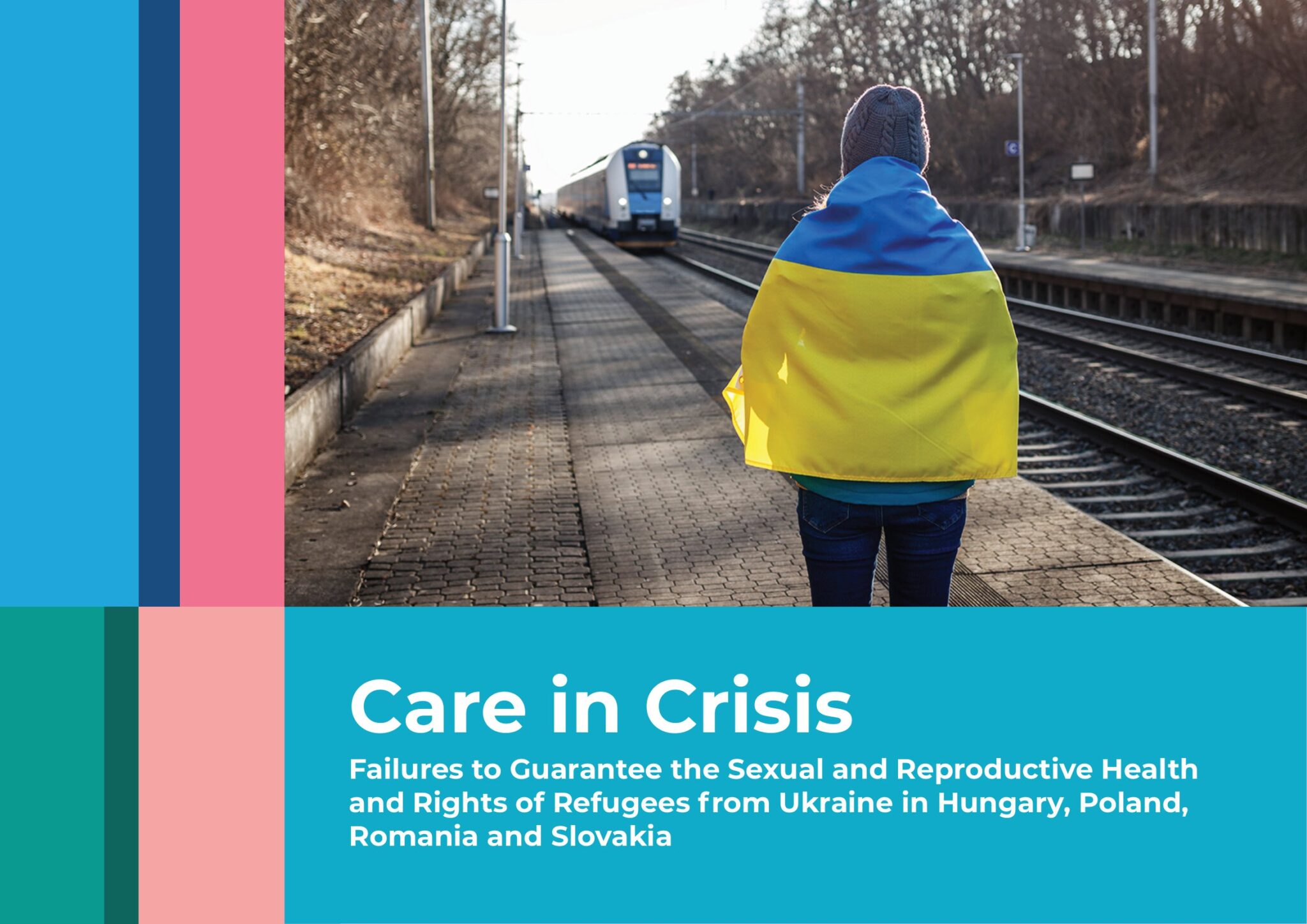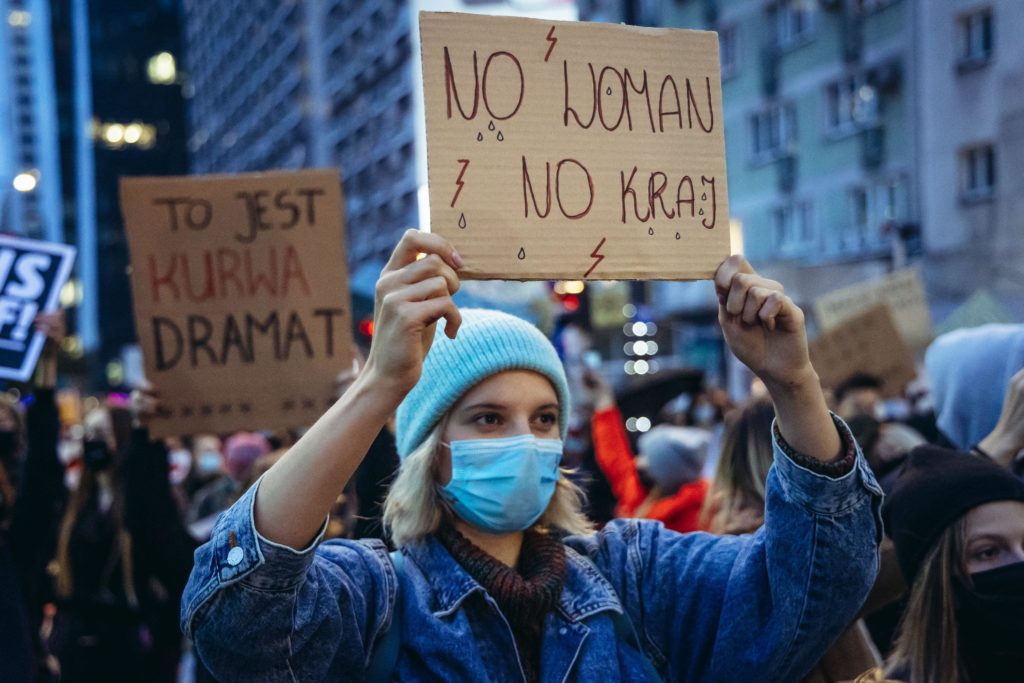Center Continues Work to Ensure Access to Lawful Abortion Care in Poland
The Center’s joint submission leads to decision by the Committee of Ministers of the Council of Europe recognizing Poland’s failure to comply with judgments in three cases.

Poland has repeatedly failed to improve access to abortion care as required in three judgments by the European Court of Human Rights (ECHR) dating back to 2007.
In response to Poland’s longstanding inaction, the Committee of Ministers of the Council of Europe issued a decision on June 7 strongly urging the country to ensure effective access to lawful abortion, without further delay, and to issue clear and unified guidelines on abortion for hospitals and medical professionals.
The Committee’s action came after the Center for Reproductive Rights and its partner in Poland, Foundation for Women and Family Planning (FEDERA), submitted a communication to the Committee in April outlining Poland’s longstanding failure over many years to take effective measures to implement the ECHR’s judgments. It also cited the country’s recent regressive restrictions to further impede access to abortion care and made several recommendations for concrete action to implement the judgments.
What is the Committee of Ministers of the Council of Europe?
The Committee of Ministers is the Council of Europe’s decision-making body. It is both a governmental body where national approaches to European problems are discussed and a forum to find collective responses to such challenges. The Council of Europe is Europe’s leading human rights organization. It includes 46 member states, 27 of which are members of the European Union. Learn more.
The three cases—Tysiąc v. Poland (2007), R.R. v. Poland (2011), and P. and S. v. Poland (2013)—involved women who were denied or obstructed from obtaining abortion care. In its judgments in the three cases, the ECHR found Poland responsible for multiple violations of human rights, citing the government’s failure to ensure the accessibility in practice of legal abortion, as well as its failure to address barriers and the appalling treatment faced by those seeking abortion care.
“More than 16 years have passed and no effective measures have been taken to comply with these landmark judgments on access to legal abortion. Poland’s failure to implement these judgments violates its international human rights obligations and is exposing women and pregnant persons to harm endangering their health and lives,” said Keina Yoshida, Senior Legal Adviser for Europe at the Center. “We welcome the Committee’s decision urging Poland to abide by the European Court’s judgments and emphasize that the Polish authorities must take urgent action to ensure that access to legal abortion is guaranteed.”
ECHR Found Multiple Obstacles to Abortion and Human Rights Violations by Poland
In its rulings in the three cases, the ECHR found that Poland committed several human rights violations and cited the multiple obstacles and deplorable treatment that the applicants faced in seeking access to lawful abortion care in Poland. The cases also concerned the authorities’ failure to provide access to reliable information on the conditions and procedures for access to lawful abortion.
Each of the three judgments addressed distinct but overlapping issues regarding the Polish authorities’ ongoing and serious failures to ensure that access to legal abortion in Poland becomes a practical reality for women and adolescent girls and is not merely a theoretical entitlement. Since the judgments became final, the Committee has issued several decisions and an interim resolution urging Poland to fully, effectively and promptly implement these judgments.
Refugees from Ukraine Cut Off from Reproductive Health Care in Poland and Other Countries
Facing restrictive abortion and contraception laws and other quality of care barriers in Poland, Hungary, Romania and Slovakia, many women feel they have no choice but to return to Ukraine to obtain care. Read this recent report by the Center and partners.
Poland Has Regressed on Abortion Rights
Since the ECHR rulings in the three cases, not only has Poland failed to comply with its international human rights obligations to implement the judgments, but it has further regressed on abortion rights. While almost all European countries have liberalized their abortion laws in recent decades, Poland has defied that trend and has further limited abortion access.
In 2020, Poland’s Constitutional Tribunal extended the country’s abortion prohibitions when it ruled that abortion on grounds of severe or fatal fetal impairment was unconstitutional. With the ruling, Poland became the only EU member state in recent history to remove a ground for legal abortion. As a result, today in Poland abortion is prohibited in almost all circumstances. While it is legal following sexual assault or where a pregnant woman’s health or life is at risk, in practice, it is extremely difficult to access abortion even in these exceptional situations.
The near total ban on abortion is having devastating impacts on women’s health and lives. Since 2021, at least seven pregnant women have died as a result of being denied life-saving care during obstetric emergencies.
Since 2015, the independence and legitimacy of Poland’s Constitutional Tribunal—the top court overseeing the compliance with Poland’s constitution—has been undermined by the conservative ruling Law and Justice party. As a result, the Tribunal is no longer considered an impartial and independent court.
Attacks on reproductive rights have intensified in Poland, as have attacks against civil society organizations and women human rights defenders. In March, a district court in Warsaw convicted human rights defender Justyna Wydrzyńska of the crime of “helping with an abortion” for assisting a woman with access to abortion medication. In July, a woman was reported to the police by doctors who suspected her of having an abortion, despite the fact that the criminalization of abortion does nor apply to women who have an abortion, but only to those that assist them.
Poland’s abortion ban has also prevented women and other refugees fleeing the war in Ukraine from accessing abortion care, forcing many to return to Ukraine just to access the health care they need.
Submission Recommends Robust Measures to Ensure Abortion Access
The joint submission by the Center and FEDERA to the Committee made several recommendations to require Poland to improve access to abortion care. They include robust measures to:
- Ensure effective and full implementation of the abortion law and to hold health facilities and professionals accountable for any failures to comply with legal obligations to provide abortion care and related information.
- Guarantee patients receive reliable and accurate information on the requirements and process for access to legal abortion care, including the adoption of comprehensive guidelines on abortion care for medical providers.
- Guarantee that full and reliable information is provided to pregnant women and adolescent girls enabling them to take informed decisions about their pregnancy.
- Implement an effective, patient-centered and timely procedure for patients to challenge and resolve disagreements with and between medical providers regarding their entitlement to legal abortion care and to exercise their rights in this regard within a very short time period.
- Implement effective regulatory, monitoring, oversight and enforcement frameworks and mechanisms to ensure that access to legal abortion services or prenatal testing is not delayed or undermined when medical providers invoke the conscience clause.
- Implement measures to enhance respect for patient data confidentiality and ensure that processing of patient data is only for the purpose of patient care and complies with legal principles of necessity and proportionality.
- Implement targeted measures to ensure that the needs of adolescents who are seeking legal abortion care are met and that they are treated with respect and due consideration for their vulnerability.
“Only once all of these measures have been adopted by the Polish authorities, can these three judgments be considered implemented,” states the submission.
The Committee adopted several of the submission’s recommendations in its decision, which also requires Poland to report on its progress by December 15, 2023. The Committee will evaluate Poland’s implementation of the judgments in March 2024.
More on the Court’s Judgments in the Three Cases
- Tysiąc v. Poland concerned a woman whose continued pregnancy posed a serious risk to her eyesight and her health but who was denied a medical certificate attesting to her entitlement to a legal abortion. The Court’s judgment centered on the absence of an effective procedure by which women can challenge and resolve disagreements with and between doctors concerning their right under domestic law to an abortion on medical grounds. The Center filed an amicus brief in this case.
- R.R. v. Poland concerned medical providers’ repeated failures to guarantee the applicant’s entitlement under domestic law to prenatal diagnostic tests, which prevented her from being able to legally obtain an abortion on indication of risk of severe fetal impairment. The Court held that Poland must put in place an effective legal and procedural framework that guarantees that relevant, full and reliable information is available to women enabling them to take informed decisions about their pregnancy in a timely manner. The Court emphasized that Poland must take steps to address what it termed a “striking discordance” between the theoretical legal right to abortion services and its practical realization. It also held that Poland must ensure that women’s access to legal reproductive health services is not jeopardized by medical providers’ refusals of care on grounds of conscience. The Center was an advisor to the applicant’s representative in this case.
- P. and S. v. Poland concerned an adolescent girl whose legal entitlement to an abortion after she was sexually assaulted was established by a prosecutor’s certificate as required by Polish law. However, she faced repeated arbitrary and harmful behavior by medical professionals and other state authorities which severely hampered her access to legal abortion care and resulted in disclosure of her confidential medical information. The Court recognized that medical providers “did not consider themselves obliged” to provide legal abortion care based on the prosecutor’s certificate and held that the adolescent girl was treated by the authorities in a deplorable manner. The judgment requires Poland to take measures to guarantee effective access to reliable information on the conditions for, and effective procedures enabling access to, legal abortion care. It also necessitates strengthening enforcement policies and procedures for holding health facilities and professionals accountable for failures to comply with their obligations to provide legal abortion care. The Center was an advisor to the applicant’s representative in this case.
Read more.
- Decision by Committee of Ministers of the Council of Europe, 06.07.23
- Joint submission by the Center for Reproductive Rights and the Foundation for Women and Family Planning to the Committee of Ministers of the Council of Europe, 04.18.23
- NGO letter to EU Ministers on the rule of law and human rights situation in Poland, 02.16.22
- Council of Europe Committee of Ministers Urges Poland to Ensure Access to Lawful Abortion Care, 12.03.21
- Poland: A Year On, Abortion Ruling Harms Women, 10.19.21
- Poland Called on to Implement Long-Overdue Abortion Measures, 04.01.21



